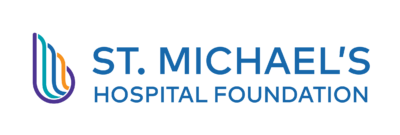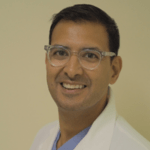Diabetes, Kidney & Transplant

With several clinics, programs and services dedicated to helping patients living with chronic kidney diseases, diabetes and its related complications, Unity Health’s Kidney and Metabolism program takes a multidisciplinary approach to patient care, and offers a diverse range of services. The program encompasses several areas including Ear, Nose, Throat and Voice (Department of Otolaryngology, Head and Neck Surgery).
Diabetes, Kidney & Transplant at St. Joseph's Health Centre
St. Joseph’s Kidney and Metabolism program offers a comprehensive range of services for patients at risk of kidney failure or who are in the later stages of kidney disease. Our interprofessional team works with patients and their families with the goal of managing their health to delay the need for kidney replacement treatment.
Osteoporosis is a chronic condition characterized by a low bone mass and deterioration of the bone tissue, causing bones to become thin and weak. The COPE Clinic team at St. Joseph’s Health Centre assesses and tests patients who have been diagnosed with osteoporosis to optimize treatment and self-management to maintain bone health and preventing fractures.
1st Floor Gilgan Family Wing
Our Diabetes Education Program provides treatment, management, education, and support to individuals living with Type 1, Type 2 and Gestational Diabetes. We are an accredited ADP program and provide on-going education to individuals using insulin pump and/or sensor technology. We assist women living with diabetes with pre-conception planning and work together throughout their pregnancy. Through individual counseling, inter-professional diabetes clinic and group classes, we work with people, and their supports, to help them achieve their health related goals.
Contact Us
Sun Life Diabetes Management Program
1st floor Gilgan Family Wing, 30 The Queensway, Toronto, ON, M6R1B5
For bookings: 416-530-6043
Services
Please note – We are currently operating virtually with in-person visits according to need, capacity, and current COVID-19 restrictions.
Diabetes clinic
The team: Endocrinologist, Diabetes Nurse Educator, Registered Dietitian and Social worker (on referral)
Offers: Medical assessment, diabetes management, education, and support
Time: Wednesday – afternoons, Thursdays – all day
Requires: Referral form completed by MD with labs
Diabetes in pregnancy
- Diabetes in pregnancy class (currently virtual via Zoom)
The team: Diabetes Nurse Educator and Registered Dietitian
Offers: An introductory class with education and management focused on diabetes in pregnancy. Blood glucose meter education provided.
Time: Tuesday afternoons between 1 pm – 3 pm
Clients: Gestational Diabetes, Type 1 and Type 2 Diabetes in pregnancy
Requires: Referral form completed by MD or midwife with labs - Diabetes in pregnancy clinic (virtual and in person)
The team: Endocrinologist, Diabetes Nurse Educator and Registered Dietitian
Offers: Medical Assessment, Diabetes Management, Education and Support for pre-conception, pregnancy, and post-partum follow-up
Time: Tuesday mornings
Clients: Pre-existing Diabetes and Gestational Diabetes
Requires: Referral form completed by physician or midwife with labs
Diabetes education classes
- Diabetes education class (on hold)
The team: Diabetes Nurse Educator, Registered Dietitian, Physiotherapist and Social Worker
Offers: Diabetes education for people with Type 2 diabetes
Time: Bi-monthly on Monday between 8:15 am – 3 pm
Clients: Not appropriate for clients who are not able to participate in a group setting and/or are not able to communicate and read in English.
Requires: Referral form completed by physician or inter-professional staff with labs - Carbohydrate counting class (via zoom)
The team: Registered Dietitian
Offers: How to carbohydrate count for increased flexibility in food choices and improved blood glucose control
Time: offered quarterly
Clients: Not appropriate for clients who are not able to participate in a group setting and/or are not able to communicate and read in English.
Requires: Referral form completed by MD or inter-professional staff, with labs
Diabetes education
The team: Diabetes Nurse Educator and Registered Dietitian
Offers: Individual education for clients with Type 1 and Type 2 Diabetes
Time: Appointment times 8 am – 3 pm; Monday through Friday
Clients: Type 1 and Type 2 Diabetes
Requires: MD referral form completed, with labs. Interpreter services are available and are scheduled in advance.
Referrals
Physician referrals are required for all new appointments. A second referral will be needed if the patient has not been seen by our program in the past year.
Using the Diabetes Education Referral Form physicians are asked to specify which health-care professional(s)/services they are requesting, one-to-one education, clinic and/or group class. This may include:
- nurse
- dietitian
- endocrinologist
Completed referral forms and relevant labs are sent by fax to (416) 530-6050.
Assistance with insulin adjustments can be made by nurse/dietitian with MD authorization on referral form.
Preparing For Your Visit
Registering for an Ambulatory Care Centre appointment
- If lab tests have been ordered, please complete (1 week) prior to your scheduled visit.
- Bring your health card, all medications in their original bottles or an up-to-date medication list/Blister Pack, including insulin, non-prescription drugs, and natural health products.
- Bring your logbook, blood glucose meter and/or recent meter download. If you are using an insulin pump and/or a continuous glucose monitor/flash sensor, please upload your data at home prior to your visit.
Resources
Tools and Resources
- Diabetes Canada Written Tools/Resources
- Diabetes Canada Videos
- Diabetes Canada Recipes
- Waltzing the dragon
- Pumps available in Canada
- Glucose monitoring (CGM and Flash)
- Blood glucose logs
Websites
Carbohydrate Counting Resources
Apps/Websites
- MyFitnessPal: myfitnesspal.com
- CalorieKing: calorieking.com
- Canadian Nutrient File
- Beyond the Basics Food List
The Department of Ophthalmology at St. Joe’s provides services for approximately 4,000 patient visits annually through the fully staffed on-site Eye Clinic. The clinic is equipped with laser therapeutic technology as well as a minor operatory for oculoplastic surgical cases. The department performs approximately 1,500 cataract surgeries per year as well as strabismus and glaucoma cases. The members include comprehensive general ophthalmologists and specialists in pediatrics, glaucoma, retina and uveitis.
Ground Floor East Wing
The Interprofessional Resource Team (IRT) is an innovative and dynamic team that provides relief staffing in patient care settings across the health centre. The team consists of registered nurses, registered practical nurses and health care attendants.
4 Gilgan Family Wing, 02 (Staffing Office)
416-530-6458
NRTStaff@StJoesToronto.ca
Monday to Friday, 5:30 a.m. to 9 p.m.
Saturday, Sunday and Holidays, 5:30 a.m. to 9 a.m. and 5 p.m. to 9 p.m.
The Eye Clinic at St. Joseph’s Health Centre provides approximately 4,000 patient visits and performs approximately 1,500 cataract surgeries every year.
For more information, visit Ophtalmology.
Clinics & Services
If you or a family member require dialysis treatment during your stay in Toronto, please review the patient intake information and frequently asked questions form. This form will provide a clinic overview and general information. Please send the completed form to: DialysisTravel@unityhealth.to
In addition, we will need the following forms to be completed at least two weeks prior to arriving in Canada:
Please note that by completing and sending the following intake forms, you agree to communicate your medical information via email.
The clinic accepts referrals for patients seeking treatment for hormonal diseases including thyroid disease, lipid disorders, and disorders of other organs such as the pituitary, parathyroid and adrenal glands. Our endocrinologists are skilled in the detection and management of conditions that impact patient’s lives. Our specialists will work with you to find the treatment option that is ideal for you.
View Endocrinology ClinicIf you or a family member require dialysis treatment during your stay in Toronto, please review the patient intake information and frequently asked questions form. This form will provide a clinic overview and general information. Please send the completed form to: DialysisTravel@unityhealth.to
In addition, we will need the following forms to be completed at least two weeks prior to arriving in Canada:
Please note that by completing and sending the following intake forms, you agree to communicate your medical information via email.
The Home Dialysis Program focuses on implementing innovative, creative and individualized strategies in the process of counseling and training patients and their families to support dialysis modalities in the comfort of patients’ own homes.
View Home Dialysis ProgramThe Division of Urology at St. Joseph’s Health Centre boasts a wide variety of expertise in general and subspecialty urology, serving the patients of west Toronto.
We work out of a state of the art Urology Department, at St. Joseph’s Health Centre, that offers Urologic procedures under both local and general anesthesia. We are affiliated with the University of Toronto and are involved with training students, residents, and have an established Fellowship in Endourology and Advanced Laparoscopy.
We have special interest in minimally invasive surgery, endourology, and urological cancers. Our mission is to provide our patients with comprehensive, quality urology services in an efficient and caring environment. We aim to improve patient outcomes and experiences with compassionate care by using state of the art surgical technologies.
The clinical expertise offered at St. Joseph’s includes, but is not limited to, the following domains:
Endourology
We offer patients with stone disease endoscopic treatments such as semi-rigid ureteroscopy and digital video flexible ureterorenoscopy, antegrade & retrograde percutaneous nephrolithotripsy (PNL) for treatment of large kidney stones.
Minimally invasive surgery and laparoscopy
The Division of Urology at St. Joseph’s Health Centre has established itself as a pioneer in laparoscopic surgery in this area. Wide arrays of laparoscopic procedures are offered to patients which include:
- Laparoscopic Radical Prostatectomy
- Laparoscopic Partial & Radical Nephrectomy, Adrenalectomy
- Laparoscopic Nephroureterectomy
- Laparoscopic Pyeloplasty
Urologic cancers
Uro-oncology deals with cancers of the urinary system and male reproduction system. These include cancers of kidney, adrenal gland, ureter, bladder, prostate, urethra, penis and testis. Our centre offers comprehensive medical and surgical management of these cancers.
Urinary incontinence
Urinary incontinence is loss of bladder control. Symptoms can range from mild leaking to uncontrollable wetting. It can happen to anyone, but it becomes more common with age.
Treatment depends on the type of urinary incontinence and what best fits the patient’s lifestyle. It may include simple exercises, medicines, or surgery. We workup patients with urinary incontinence to identify the type of urinary incontinence affecting them (Urge Urinary incontinence, or Stress Urinary incontinence). We offer patients with stress urinary incontinence mid urethral slings (TVT, TOT).
BPH
Patients with Benign Prostate Hypertrophy causing bothersome lower urinary tract symptoms are appropriately assessed and if indicated treated with medications. Patients who need surgical intervention are generally treated by endoscopic means through a transurethral resection of the prostate (TURP). We also offer Greenlight Laser surgery as well as other Minimally Invasive Surgical Treatments (MIST) for BPH.
Return to St. Joseph’s Department of Surgery

Diabetes, Kidney & Transplant at St. Michael's Hospital
The St. Michael’s Hospital Kidney and Metabolism program takes a team-based approach to managing proactive care. Our team consists of endocrinologists, nephrologists, urologists, nurses, nurse educators, registered dietitians, social workers, chiropodists, pharmacists and other allied health-care providers.
The Interprofessional Resource Team (IRT) at St. Michael’s is an innovative team that has presence in patient care settings across the hospital. The team consists of registered nurses and clinical assistants.
2 Bond St. (booking office)
416-864-2364
NRTOFFICE@smh.ca
Monday to Sunday, 5:30 a.m. to 9:30 p.m.
The Department of Ophthalmology at St. Michael’s is a world-class facility recognized for excellence in patient eye care, research and teaching in the field of ophthalmology.
For more information, visit Ophtalmology.
Renal Services includes a wide range of different kinds of dialysis as well as vascular and peritoneal dialysis (PD) access, renal clinical technology, kidney stone prevention and our renal transplant program. St. Michael’s offers a comprehensive range of services for patients at risk of kidney failure or who are in the later stages of kidney disease, with the goal of managing their health and educating them on kidney replacement options if required.
The kinds of dialysis services we offer include:
- Pre-dialysis/Multi Care Kidney Clinic: This clinic is for patients with end-stage renal disease who have not yet started dialysis or who are preparing for a kidney transplant.
- Hemodialysis: Safe and successful hemodialysis is a highly technical process involving sophisticated equipment and resources used to clean the patient’s blood. This is the most common type of dialysis.
- Peritoneal dialysis: Patients can choose between continuous ambulatory peritoneal dialysis (CAPD) and continuous cycling peritoneal dialysis (CCPD). In CAPD, dialysis fluid is administered to the abdomen four to five times daily and is drained after several hours. There is no machinery required for this type of dialysis. In CCPD, the patient is attached to a machine that performs all the filling and draining of the fluid automatically. The machine administers the fluid every night for eight to 10 hours, and some patients require an additional fill during the day.
- Nocturnal Hemodialysis: This program is unique to St. Michael’s Hospital and provides treatment for patients who are either unable to perform home dialysis therapy or who are working towards home therapy. Patients are treated in the main hemodialysis unit overnight while they sleep, three times per week.
- Continuous renal replacement therapy (CRRT): For acute specialized treatments, the clinical technology department operates five continuous renal replacement therapy (CRRT) machines.
- Home dialysis: Our home dialysis programs provide education and training on either hemodialysis or peritoneal dialysis so patients are able to perform dialysis on themselves from the comfort of their own home.
45 Overlea Blvd, Unit 2, East York Town Centre
416-867-3700
Monday, Wednesday, Friday, 7 a.m. to 5 p.m.
Tuesday, Thursday, Saturday, 7 a.m. to 1 p.m.
Clinics & Services
The Apheresis Unit performs Therapeutic Plasma Exchange, Red Cell Exchange, mononuclear cell collection for research and ABO Immunoadsorption for ABO incompatible kidney transplantation. We also participate in clinical trials.
View Apheresis ClinicIn addition to seeing adults living with Type 1 or Type 2 diabetes, the St. Michael’s Diabetes Clinic offers a specialized clinic for young adults (ages 18 to 24) with Type 1 or Type 2 diabetes. The team includes endocrinologists (diabetes doctors), diabetes nurse educators, registered dietitians and a social worker, chiropodist and pharmacist who will work collaboratively with you to create an individualized care plan.
Services include:
- Regular appointments with an endocrinologist for an initial assessment and follow up
- One-on-one appointments with team members
- Young Adult Diabetes Clinic
- Insulin Pump Program
- Insulin Dose Adjustment Clinic
- Diabetes in Pregnancy Clinic
- Group education classes
- Mentorship Program
The Endocrine Clinic specializes in the diagnosis and treatment of endocrine disorders, which may involve one of several hormone-producing glands like the thyroid, pituitary, adrenal, parathyroid, ovaries or testes. At the clinic, patients are seen by residents (doctors in training) and an endocrinologist.
View Endocrine ClinicThe hemodialysis program is a part of Diabetes Comprehensive Care. The range of services includes conventional dialysis, daily dialysis, home and nocturnal dialysis, conventional acute dialysis and continuous veno-venous hemodialysis (CVVHD).
If you or a family member require dialysis treatment during your stay in Toronto, please review the patient intake information and frequently asked questions form. This form will provide a clinic overview and general information. Please send the completed form to: DialysisTravel@unityhealth.to
In addition, we will need the following forms to be completed at least two weeks prior to arriving in Canada:
Please note that by completing and sending the following intake forms, you agree to communicate your medical information via email.
Home dialysis training is scheduled Monday to Friday for six hours each day. Patients receive dialysis during the training sessions. After successful training, patients attend the Home Dialysis Clinic every eight weeks.
View Home Dialysis ProgramIf you or a family member require dialysis treatment during your stay in Toronto, please review the patient intake information and frequently asked questions form. This form will provide a clinic overview and general information. Please send the completed form to: DialysisTravel@unityhealth.to
In addition, we will need the following forms to be completed at least two weeks prior to arriving in Canada:
Please note that by completing and sending the following intake forms, you agree to communicate your medical information via email.
In the clinic, patients are evaluated by the nephrologist (kidney doctor) and registered dietitian. This includes a review of medical history, physical examination, blood tests and two 24-hour urine collections. These results and the stone analysis can assist physicians to make a diagnosis and treat many factors which put patients at risk to form kidney stones. Specific suggestions for lifestyle changes, diet and medications can be made to manage and reduce the risk of stone formation. The appointment with the nephrologist (kidney doctor) and registered dietitian are virtual consultations (phone or video) until further notice due to COVID-19.
View Kidney Stone Prevention ClinicTransplant is a treatment option for people with severe kidney disease. Founded in 1969, the St. Michael’s Kidney Transplant Program is one of the largest adult kidney transplant programs in Canada. At any given time, there are hundreds of patients being actively followed in the post-transplant ambulatory clinic.
The program receives referrals from more than 30 dialysis centres and kidney clinics in the Greater Toronto Area.
View Kidney Transplant ProgramThe Lipids Clinic specializes in the diagnosis and treatment of abnormal lipid (cholesterol) levels. The team works with people who are at high risk for future cardiovascular disease.
At the clinic, you will be seen by a registered dietitian and a physician for assessment, medical treatment and advice on healthy living. The clinic is also involved in many research studies related to diet and medications that may reduce your risk of heart disease.
View Lipids ClinicThe Osteoporosis and Metabolic Bone Disease Clinic uses state-of-the-art equipment and tests to investigate and manage osteoporosis and other metabolic bone diseases. Our multidisciplinary team is made up of endocrinologists, rheumatologists, internists, gynecologists, nurses and dietitians. The clinic was the first of its kind in Toronto and is also involved in cutting edge clinical research.
View Osteoporosis and Metabolic Bone Disease ClinicThe Division of Urology at St. Michael’s provides general urological care to the community, but also provides subspecialized care in the following areas:
- Kidney transplantation
- Robotic-assisted surgery
- Laparoscopic surgery
- Shock wave lithotripsy (SWL) for kidney stones
- Endourology (minimally invasive procedures for kidney stones)
- Cancer surgery for all urologic cancer including kidney, bladder and prostate

Last updated October 11, 2024



